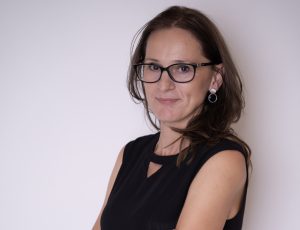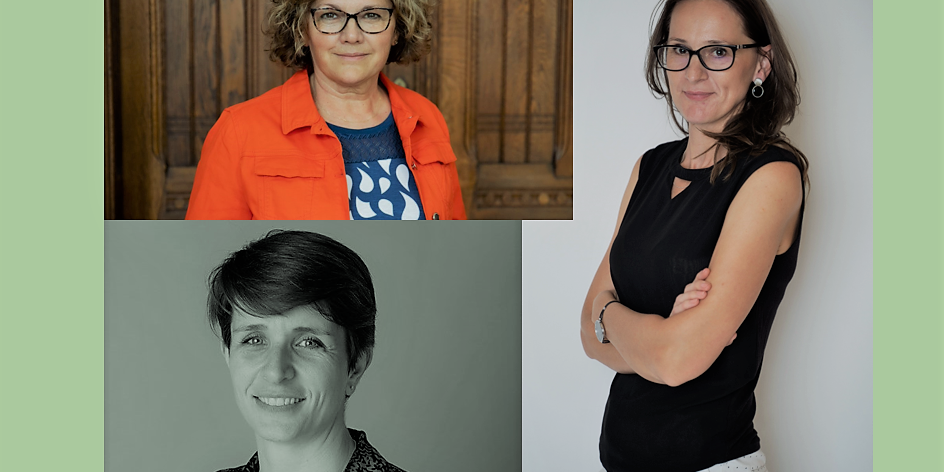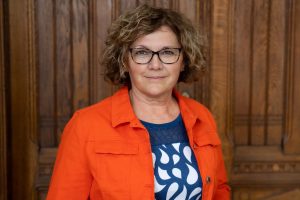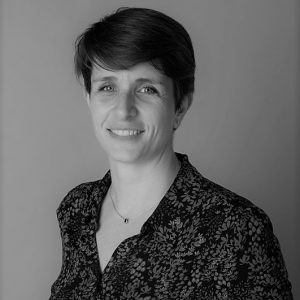Emília Csiszár
Emília is the Vice-Rector for International Affairs at the Budapest University of Technology and Economics (BME). She is a professor at the Faculty of Chemical Technology and Biotechnology, responsible for the Masters’ program in Polymer and Fibre Technology. As part of her research, she developed environmentally friendly, enzyme-aided alternatives for chemical finishing technologies of textiles and fibers. Currently, nano cellulose and other polysaccharide-based materials are the focus of her research work with the aim of producing high-added value products. She has actively contributed to building international relations as a principal investigator in various international collaboration projects. As the second female Vice-Rector at BME, she is highly committed to raising the attractiveness of scientific careers among the younger female generations.
* In her own words:
I believe the versatile efforts of BME in terms of supporting the career orientation of the younger generations are crucial to raising the popularity of an engineering degree among teenage girls. Thus, in my opinion, based on years of experience, BME could provide useful insights into the relevant EELISA initiative. Moreover, I consider this joint venture a personal mission that I shall highly support during the time of my vice-rectorship.”
* Her key ideas to define EELISA:
Equality. Integration. Dynamism.
Diana Mariana Cocârță
Diana is an associate professor at the University POLITEHNICA of Bucharest, Faculty of Energy Engineering. She is the Head of the Laboratory for Analysis, Control, and Remediation of Contaminated Soils from the Research Centre for Advanced Materials, Products, and Processes (CAMPUS). Her research activity is focused on the development of tools and techniques for the assessment of environmental risks. She is a mother of two kids who gave her the greatest gift of all: to be a happy (scientist) mom!
* In her own words:
Being previously a Ph.D. and Erasmus student at University of Trento, Italy, I truly believe that the internationalization in higher education is fostering students’ abilities to act in international environments. Through EELISA we can inspire and encourage women into engineering; this will become possible by engaging the European Universities in facing comparative approaches for learning, stimulating intercultural education, and socializing for international understanding. I will get involved in this direction.
* Her key ideas to define EELISA:
Internationalization. Knowledge transfer. Engagement.

Dorothée Citerne
Dorothee is a structural engineer with 15 years of experience in international team management for the design and delivery of iconic building projects (museums, high rise towers, urban planning) in France, China, and the UK. She graduated from ENPC in 2005. She currently leads the regional office of setec organisation in Lyon, a multidisciplinary client advisory team working on building, urban, and rail/transportation projects. Working abroad for seven years has given her solid expertise in multicultural team management and diversity issues. Once back in her home country she has joined several charities (Sciences Paris Tech au Féminin, Grandes Ecoles au Féminin, Entretiens de l’Excellence) to promote diversity in the workplace and to engage with young students interested in pursuing scientific studies.
* In her own words:
“As a French engineer who has worked abroad for several years, I am convinced that sharing knowledge and best practices across borders are the best way to develop the best solutions to the global challenges we are facing. I hope that my career can inspire young students from any background to choose scientific and engineering studies!”
* Her key ideas to define EELISA:
Collaboration. Diversity. Sustainability.



